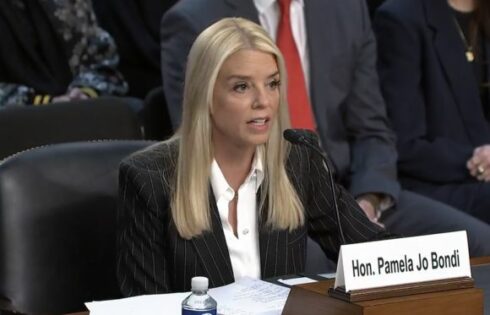Politicians take note: Loosening America’s intellectual protection laws could help jumpstart the economy.
Several countries with weak intellectual protection laws have the fastest growing emerging economies, meanwhile the United States – which has some of the strictest IP rules – is stuck in a Great Recession.
Recent empirical evidence and policy analysis have revealed the reason for that is tough intellectual property laws inhibits competition, and economic growth is hindered by their existence.
Last month, the Global Intellectual Property Center in conjunction with the U.S. Chamber of Commerce released a report evaluating intellectual property laws in eleven different countries using categories such as patent law, copyright law and trademark law.
The United States ranked the highest of those studied, meaning its IP protection is the strongest in the world; worst among the eleven were Russia, Brazil, China, and India.
Yet Brazil, Russia, China, and India have something else in common. Despite weak IP protection, these four countries have the fastest growing emerging economies.
In a February 2012 report by Price Waterhouse Coopers, these four countries—the “BRIC” nations—had average annual growth rates between five and nine percent in terms of GDP, up to three times the growth rate of the U.S.
Another recent report issued by the Republican Study Committee indicates a shift in—or, at the very least, a questioning of—the general milieu surrounding IP protection.
The paper, “Three Myths about Copyright Law and Where to Start to Fix It,” was authored by Derek Khanna, who was later removed from the study committee amidst intense backlash from the entertainment industry.
Before being retracted, Khanna’s analysis concluded that overzealous copyright law was responsible for “retard[ing] the creation of a robust DJ/remix industry,…hampering scientific inquiry, [and] penalizing legitimate journalism and oversight.”
He also offered different ideas for IP reforms, including limiting the length of time a work can remain under copyright.
Khanna’s arguments support the notion that copyright and patent are nothing more than government-granted monopolies, and where monopolies exist, inefficiency abounds. IP inhibits competition, and empirical evidence suggests economic growth is hindered by its existence.
“Copyright violates nearly every tenet of laissez faire capitalism,” notes the Republican Study Committee report. “Under the current system of copyright, producers of content are entitled to a guaranteed, government instituted, government subsidized content-monopoly.”
Moreover, in the book “Against Intellectual Monopoly,” authors Michele Boldrin and David Levine conclude innovation is greater under free competition than in the presence of IP, and that IP is “damaging for society, as valuable productive capacity is literally destroyed and thrown away.”
Consider this: open-source software innovators willingly freely share their innovations and make no small amount of money doing so; authors use the Creative Commons to attribute their works to the public domain immediately, bypassing conventional copyright; and Korean pop sensation Psy is worth millions of dollars in no small part because he welcomes the unregulated sharing and “pirating” of his name and brand.
In contrast, in a recent example of squandered wealth, Carnegie Mellon University won a lawsuit worth $1.17 billion against Marvell Technology Group for infringing upon two of its patents.
While correlations between innovation, economic growth, and the number of patents and copyrights issued exist, calls more stringent IP protection on these grounds is fallacious, according to Stephan Kinsella, an intellectual property lawyer and libertarian legal theorist.
“The argument…assumes that innovation is critical to prosperity and economic development—true enough—and then correlates patents with innovation,” he states. “But not only is this correlation problematic—not all patents are innovative and not all innovation is patented—but even if patents are correlated with innovation, correlation does not prove causation. It is equally as plausible, in fact more plausible, that innovation persists despite, not because of, a patent system.”
Fix contributor Joseph Diedrich is a student at the University of Wisconsin-Madison.
Click here to Like The College Fix on Facebook.
IMAGE: Trusty Pics/Flickr





Please join the conversation about our stories on Facebook, Twitter, Instagram, Reddit, MeWe, Rumble, Gab, Minds and Gettr.